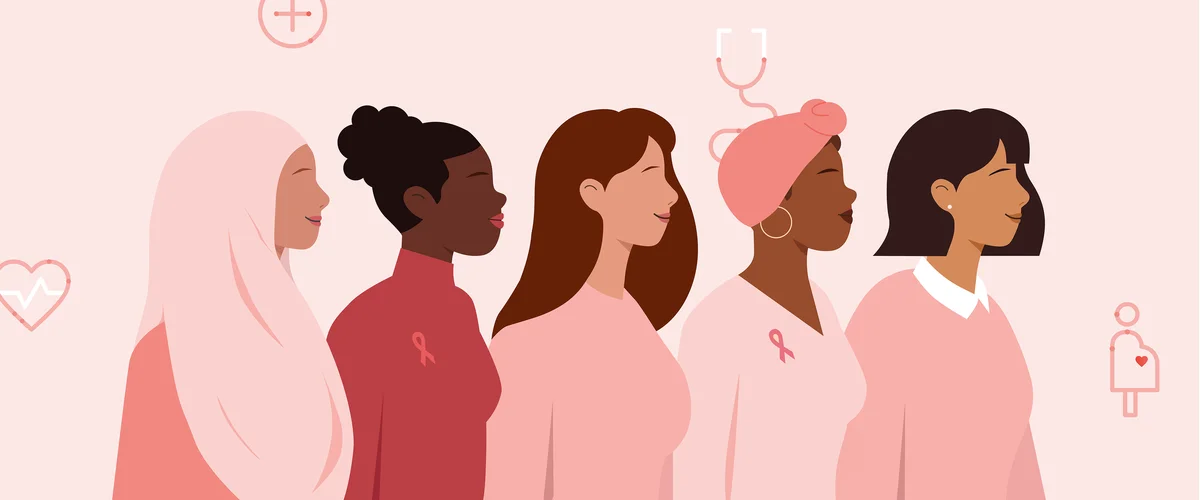For International Women’s day, we’re sharing AI solutions that can improve early diagnosis, quality and access to care for women’s health worldwide.
AI offers an unprecedented opportunity to enhance global well-being and human health — particularly women’s health. For most of history, women’s health has faced systemic barriers including limited access to funding and research, leading to inadequate treatment solutions and access to care. We see a future where AI has the potential to help overcome these barriers, and one where women are at the forefront of leading solutions and research efforts. History has taught us that when women innovate, solutions for women emerge. We also know that promoting equitable access to healthcare innovation can lead to breakthroughs that improve lives worldwide.
That’s why Google Research has been working on developing AI tools to improve care and access to care for women around the world, and for International Women’s day we wanted to share a few leading examples.
Improving access to emergency obstetric care (EmOC)
Every two minutes a woman dies of childbirth related complications globally. 70% of these cases are in Sub-Saharan Africa and the majority are preventable — with evidence showing that long travel times play a part in negative maternal outcomes. That’s where emergency obstetric care utilizing AI can help. We are using AI to better map access to obstetric care, helping partners to ensure women are able to access health services.
In collaboration with OnTime Consortium in Nigeria, in 2022, we developed a tool that identifies the average travel time to the nearest, second nearest, and third nearest EmOC facilities for different regions. Facilitated on the ground by our partner, the OnTIME Consortium, decision makers in Benin City are using the dashboard to identify areas of poor geographic access to EmOC and will conduct visual inspections to determine the reasons for poor geospatial access (e.g., potholes, roads in disrepair, commuter behavior, lack of an EmOC-trained clinician at the local facility) combining this with the live experience of locals in order to make evidence-informed, tailored recommendations. The team is now working on expanding this effort beyond Nigeria.
Maternal (prenatal) ultrasounds
Ultrasound is an essential tool to track the health of a pregnancy and developing fetus. However, many areas in the world lack ultrasound technicians. We’ve been developing AI technology that makes ultrasounds easier to perform and interpret for health care providers that are not trained sonographers. This technology could expand access to ultrasound treatment around the world. In 2023, our Research teams in the U.S. and Africa partnered with Jacaranda Health in Kenya to advance the research and improve models in several maternity hospitals. Since our study kicked off in January, hundreds of women have participated in our research, enabling us to further advance the development of this AI system.
Breast cancer ultrasounds
Today, breast cancer is the most common type of cancer in the world. Early detection is critical, and mammograms are the gold standard for breast cancer screening. But they come with limitations — they are not available to everyone due to high costs, and are not as effective in populations with higher breast density. On the other hand, ultrasound — commonly used as adjunct imaging in breast cancer diagnosis — has the potential to be an effective primary detection tool. Google has partnered with Chang Gung Memorial Hospital in Taiwan to develop and explore whether our AI models can help with early detection of breast cancer using ultrasound. In 2023, we launched a first-of-its-kind prospective study to analyze de-identified ultrasound, mammogram, and other biomarkers from study participants in order to develop AI models that can enable screening for breast cancer using ultrasound imaging. So far, we’ve found the early results to be promising.
Our work builds on the work of others to bolster women’s health — including the U.S. government’s first ever initiative on women’s health research. With the growing attention and investment, we’re optimistic about 2024 being a transformative year for women’s health, and for women everywhere.
By: Ronit Levavi Morad (Senior Director, Program Management, Google Research)
and Preeti Preeti Singh (Senior Technical Program Manager, Google Research)
Originally published at: Google Cloud Blog










